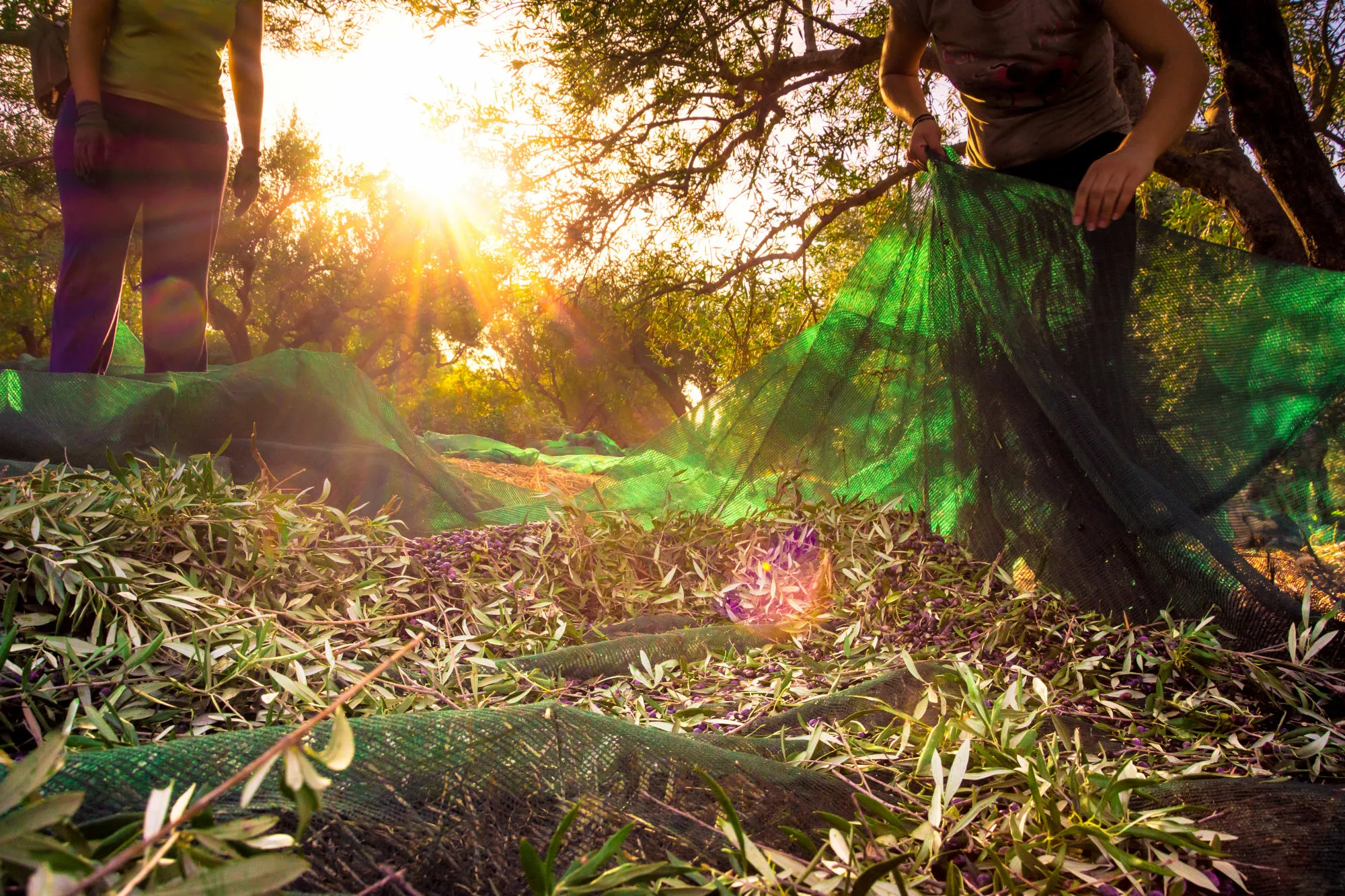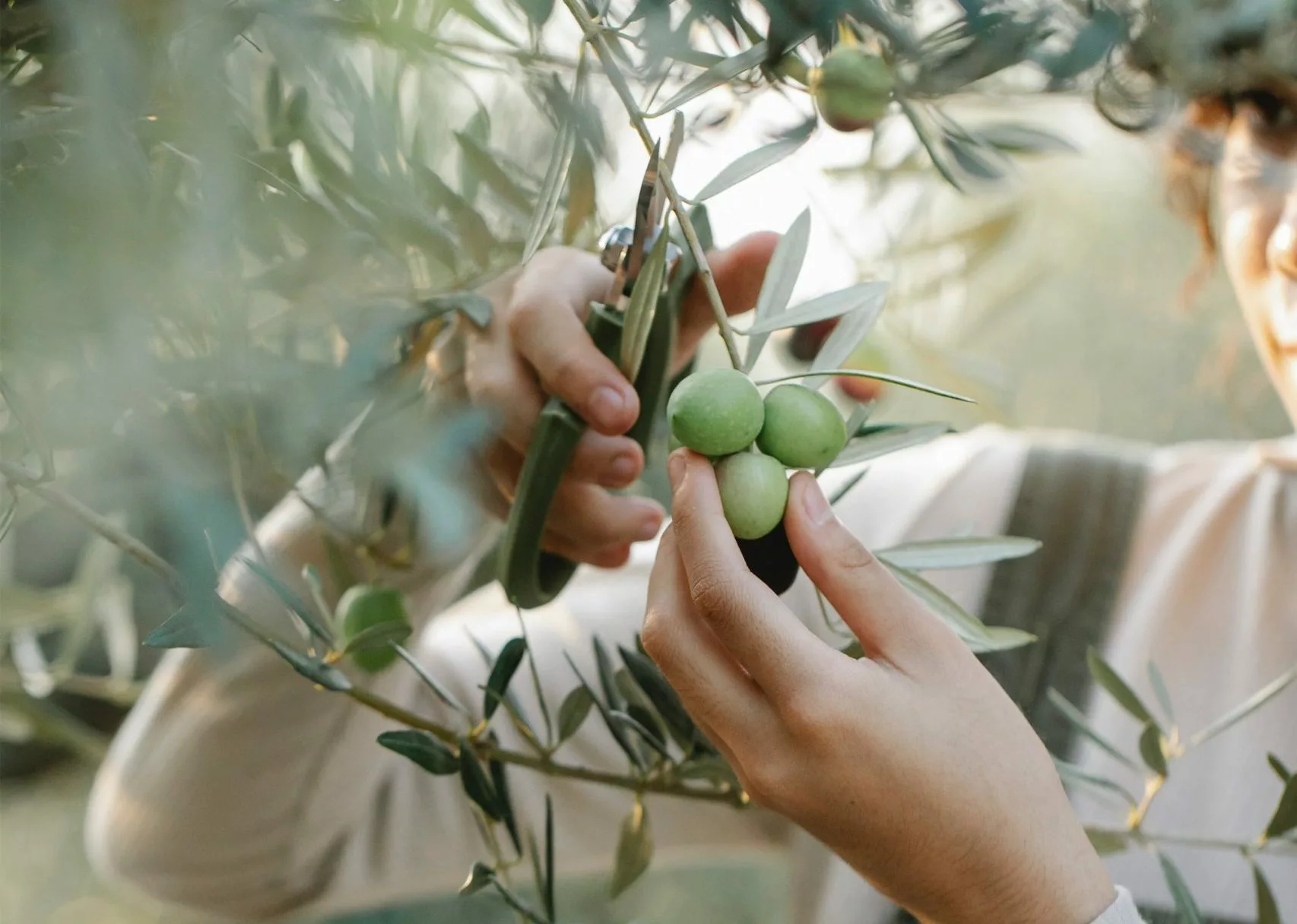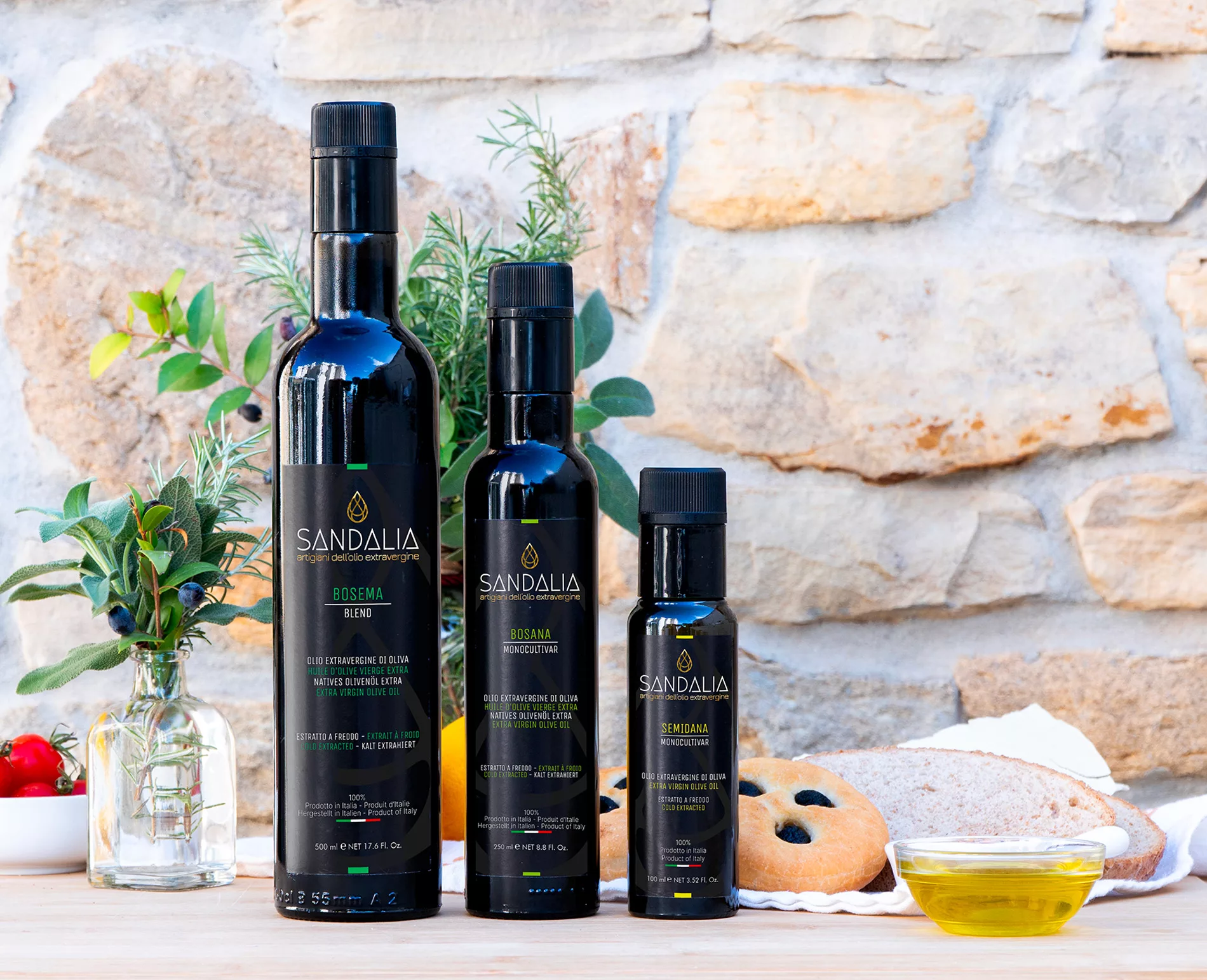Extra virgin olive oil tasters

The roots of Sandalia.
Our passion for extra virgin olive oil was born when, as children, we experienced the olive harvest period as a moment of celebration shared with our families. The days spent outdoors in the midst of nature, work experienced as a moment of sharing, the taste of snacks in the shade of the olive trees, these are the dearest postcards of our childhood.
Coming into contact with this world from an early age was also a natural consequence of the fact that San Sperate is located near to the area which, in southern Sardinia, is most representative of the oil production: Parteolla, from the Latin “Pars Olea”. An agricultural area whose hills have always been an ideal habitat for olive trees, and with which San Sperate shares the culture and tradition of the production of extra virgin olive oil. Although not part of the Curatoria of Dolia (San Sperate was historically included in the Curatoria of Decimo), our town has always been linked to the rites of the olive harvest, thanks to a geography similar to that of Parteolla which makes the area ideal for this type of cultivation.
We then embarked on different academic and professional paths, but in our hearts we always felt the strong call of the earth, of the plants and of that oil that has always given flavor to our lives. Driven by the desire to deepen our knowledge of the world of oil, Sandalia was born. A name that is already the manifesto of our vision: we want to leave our mark on the extra virgin olive oil market, with roots firmly rooted in our land, San Sperate, looking with respect to centuries-old tradition but open to innovation, in the techniques and processes, to enhance the organoleptic and qualitative characteristics of our oil.

Technique and innovation
We process the olives through mechanical processes, subjecting them to various operations that end with the separation of the solid phase from the liquid phase, achieved by centrifugation.
All the operations carried out in the oil mill, before, during and after the separation of the solid phase from the liquid one, are fundamental for increasing the quantity and quality of the extractable oil.
Quality assurance
To guarantee a high quality of extra virgin olive oil:
- We harvest the olives as soon as the veraison process begins, therefore when the color of the olive drupe begins to turn from green to black.
- After being harvested, olives are milled within the following 12 hours, to prevent the fermentation process.
- The olives are cleaned, defoliated and washed before being milled.
- We carry out a cold milling process of the olives, setting a temperature below 25°C.
- Each cultivar has its own specific milling recipe which makes the extraction process unique for that type of variety, fundamental for extrapolating the best organoleptic characteristics, aromas and perfumes.
- Oil filtration is carried out at the end of the milling process, in line with the separator, to guarantee the stability of the extra virgin olive oil. In this way it is possible to remove the remaining small quantities of water (dispersed phase) and drupe fragments (solid phase). The removal of both components avoids degradation reactions that are harmful to the quality of the olive oil.
- We store the oil in stainless steel tanks in a controlled oxygen-free atmosphere, using nitrogen, which is an inert gas used to avoid oxidation processes.
- The oil storage rooms were built with high-density rock wool insulation and an air conditioning system that allows the room temperature to be kept at 15 °C, the ideal temperature to preserve the oil for a long time.
- Bottling takes place at the time of order. This allows us to avoid potential oil degradation processes and to guarantee the customer a very high-quality product.

Respect for the environment
The quality of extra virgin olive oil depends on a series of agronomic factors. We know this well, and this is why our attention starts from the planning of the olive grove. In order to allow easy tillage of the soil and cultivation of plants, we chose a 6 x 5 meter layout that would allow for easy movement of agricultural vehicles.
The entire olive grove is equipped with a drip irrigation system, partially underground with a closed cycle, equipped with a filtration and fertigation system, thanks to which we reduce the quantity of water used and manpower.
After an initial pruning to set the olive trees in the shape of a polyconic vase, they are pruned regularly every year after each harvesting season.
During the year the soil is mulched several times, thus allowing natural organic fertilization of the soil to be carried out. Added to this is our passion for nature and experience in the green economy, environmental protection and sustainable agriculture. For us it is therefore essential to improve the natural fertility of the soil, using an agricultural production system with low environmental impact (Integrated Production), through the combination of several agronomic practices. The coordinated and rational use of all production factors ensures sustainable production of healthy olives and very high quality oil.
